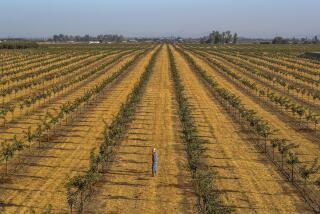No Winners if Food Aid Loses
- Share via
Even stern critics of cash welfare--for instance, Gov. Pete Wilson--often are fans of one program: the special supplemental food program for women, infants and children. This federal program, known as WIC, provides milk, juice, cereal and other basic foods to poor children through age 5 and to women who are pregnant or nursing.
The program ultimately saves public dollars. Studies have shown that poor nutrition during pregnancy can retard the physical and mental development of babies and that poor child nutrition leads to health problems and sluggish learning. WIC currently serves 7.4 million women and children.
Those facts make it all the more puzzling that the House Appropriations Committee today is scheduled to consider a cut in proposed supplemental funding for WIC. The Clinton administration wants to maintain the program at its current level of operation and has requested a $100-million appropriation to bring total funding to $3.74 billion. A Department of Agriculture review cut the request to $76 million, which was cut again, by half, in a subcommittee last week. If Congress sticks with $38 million, states will have to drop people from the program. California, the largest beneficiary of WIC, would suffer the largest cut, an estimated 169,000 participants.
California Republicans in Congress should heed Gov. Wilson. WIC costs the state nothing. It is also a rare instance of federal aid to illegal immigrants, a responsibility Washington should bear because border control is a federal obligation. And immigrants, legal or illegal, will not be the only losers if the state is forced to cut WIC vouchers. In all, more than 1.25 million women and children depend on the assistance in California alone.
More to Read
Get the L.A. Times Politics newsletter
Deeply reported insights into legislation, politics and policy from Sacramento, Washington and beyond. In your inbox three times per week.
You may occasionally receive promotional content from the Los Angeles Times.










